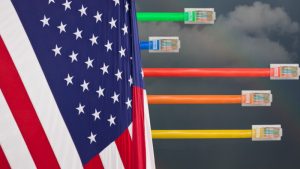Cloud computing exploded during the COVID-19 pandemic as state and local entities went virtual and focused on the delivery of digital services, but seven years ago when the Commonwealth of Massachusetts decided to shift to the cloud there was hesitancy, the state’s technology lead said.
The Department of Commerce’s National Telecommunications and Information Administration (NTIA) announced that 34 states and territories have officially signed on to participate in the $45 billion “Internet for All” Initiative, NTIA announced.
The Federal Communications Commission (FCC) announced it received a whopping $2.8 billion of requests for the remaining $1.5 billion of funding under the agency’s Emergency Connectivity Fund (ECF) program, which aims to close the “homework gap” for students that don’t have access to reliable broadband service and devices.
Washington, D.C., Mayor Muriel Bowser announced that the city is beginning a Community Internet Program (CIP) that would give internet service providers (ISP) free access to city-owned rooftops in exchange for providing high-speed internet at low or no-cost as part of the Affordable Connectivity Program.
A new study conducted by Rutgers University showcases how remote learning has put New Jersey lower-income K-12 school districts students and teachers at a disadvantage.
State government IT officials said this week they are working to deploy their share of $1 billion of Federal cybersecurity grant funding approved last November by Congress as part of the $1.2 trillion bipartisan infrastructure bill.
Youngstown State University (YSU), in partnership with the University of Northern Iowa (UNI), has launched a new $10 million tech initiative that aims to create jobs and bolster the manufacturing supply chain.
California has awarded several new contracts that will supply the materials necessary for building 3,000 miles of broadband infrastructure, taking the state one step closer to delivering affordable high-speed internet service to communities throughout California.
Clark County, Nev., this week confirmed the appointment of Bob C. Leek to serve as the county’s new chief information officer (CIO).
A revision to California’s proposed budget calls for the merger of the state’s data analytics bureau and digital service agency creating a new office that would facilitate more efficient state operations and support one-time projects.













